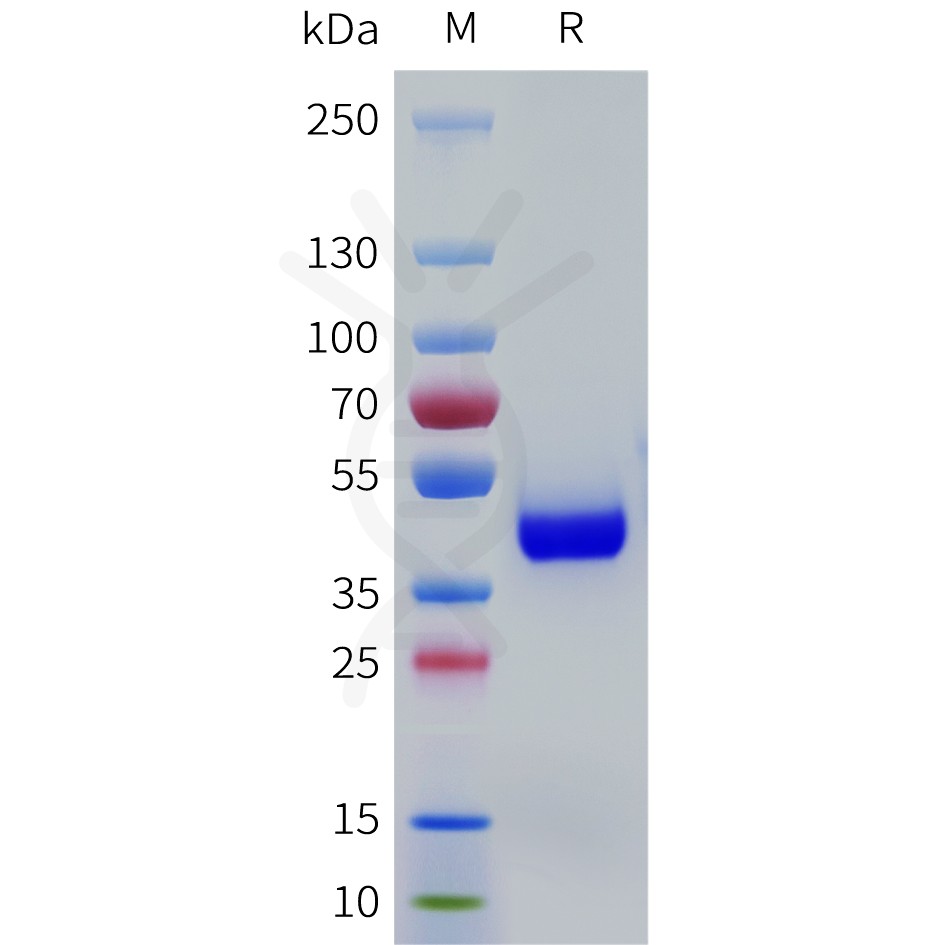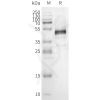| Target | |
|---|---|
| Synonyms | OR1E5; OR1E6; HGM071; OR17-2; OR1E8P; OR1E9P; OST547; OR13-66; OR17-32 |
| Description | Recombinant human OR1E1 Protein with C-terminal human Fc tag |
| Delivery | In Stock |
| Uniprot ID | P30953 |
| Expression Host | HEK293 |
| Tag | C-Human Fc tag |
| Molecular Characterization | OR1E1(Met1-Asn25) hFc(Glu99-Ala330) |
| Molecular Weight | The protein has a predicted molecular mass of 28.9 kDa after removal of the signal peptide. |
| Purity | The purity of the protein is greater than 95% as determined by SDS-PAGE and Coomassie blue staining. |
| Formulation & Reconstitution | Lyophilized from sterile PBS, pH 7.4. Normally 5 % – 8% trehalose is added as protectants before lyophilization. Please see Certificate of Analysis for specific instructions of reconstitution. |
| Storage&Shipping | Store at -20°C to -80°C for 12 months in lyophilized form. After reconstitution, if not intended for use within a month, aliquot and store at -80°C (Avoid repeated freezing and thawing). Lyophilized proteins are shipped at ambient temperature. |
| Background | Olfactory receptors interact with odorant molecules in the nose, to initiate a neuronal response that triggers the perception of a smell. The olfactory receptor proteins are members of a large family of G-protein-coupled receptors (GPCR) arising from single coding-exon genes. Olfactory receptors share a 7-transmembrane domain structure with many neurotransmitter and hormone receptors and are responsible for the recognition and G protein-mediated transduction of odorant signals. The olfactory receptor gene family is the largest in the genome. [provided by RefSeq, Jul 2008] |
| Usage | Research use only |
| Conjugate | Unconjugated |
服务热线
400-006-0995
18062749453





